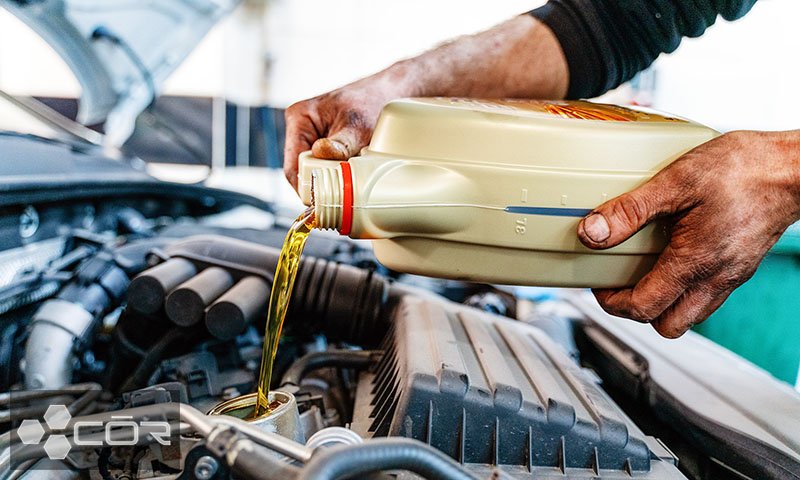The Toyota Corolla has long been one of the most popular and reliable compact cars globally, praised for its fuel efficiency, durability, and affordable maintenance. However, like many vehicles, certain model years have reported more issues than others. Knowing which Toyota Corolla years to avoid can save you from future repair headaches and ensure a more dependable driving experience. This article will delve into the less reliable Toyota Corolla years, exploring common issues, consumer complaints, and providing FAQs to guide prospective buyers.
Why Some Toyota Corolla Years Should Be Avoided
Though Toyota generally has a reputation for building reliable vehicles, even their best-selling Corolla has seen its fair share of problematic model years. These “troubled years” can result from factors like:
- Design Flaws: In some years, redesigns introduced mechanical or electrical problems.
- Faulty Parts: Certain model years experienced issues with components such as the transmission or engine.
- Safety Recalls: High recall rates in specific years indicate recurring problems that might compromise safety.
- Cost of Ownership: Some model years have high repair costs due to frequent part replacements.
Knowing these pitfalls helps you identify which Toyota Corolla years to avoid.
Toyota Corolla Years to Avoid: A Year-by-Year Breakdown
1. 2000 Toyota Corolla
The 2000 Corolla model experienced several issues related to engine performance and exhaust, specifically with oil consumption. Owners frequently reported excessive oil consumption, which led to repeated repairs and, in some cases, premature engine failure. The problem was partly due to the piston ring design, which allowed oil to burn faster, ultimately impacting engine health and efficiency.
Common Issues for 2000 Corolla:
- Excessive oil consumption
- Premature engine failure
- Higher maintenance costs over time
2. 2002-2003 Toyota Corolla
These years are notorious for transmission problems, with many owners experiencing automatic transmission failure. Transmission replacement or rebuilding is costly, so these years may not be ideal for anyone looking to avoid substantial repair bills. Additionally, the 2003 model was among the first in a new generation, and it experienced several teething problems related to both the engine and transmission.
Common Issues for 2002-2003 Corolla:
- Transmission failure or malfunction
- Engine stalling and rough idling
- Issues with the onboard computer system
3. 2009 Toyota Corolla
The 2009 Corolla model, though relatively recent, faced problems due to defective electronic control units (ECUs) that often caused stalling, especially at low speeds. Additionally, reports of steering problems surfaced, which could make handling unpredictable and pose a risk to driver safety. This model year also saw an unusual increase in brake problems, such as brake light failure and poor braking response, which was linked to an eventual recall.
Common Issues for 2009 Corolla:
- Faulty electronic control unit (ECU)
- Power steering and handling issues
- Brake and ABS malfunctions
4. 2010 Toyota Corolla
The 2010 Corolla encountered similar steering issues to the 2009 model, including “sticky” steering. Drivers reported difficulty in keeping the car straight, leading to unexpected lane changes or drifting. Additionally, this model year had reports of excessive wind noise, which may not be a mechanical problem but detracts from overall comfort. The braking system and the airbag control system also reported problems, with the latter being subject to a recall.
Common Issues for 2010 Corolla:
- Steering system problems
- Braking issues and delayed stopping power
- Wind noise and cabin comfort issues
- Faulty airbag control system
5. 2014 Toyota Corolla
Though newer, the 2014 model faced complaints regarding its continuously variable transmission (CVT). Owners reported a shuddering feeling, especially during acceleration, leading to concerns about the long-term durability of the CVT. Software updates were introduced to address the issues, but reliability concerns have persisted among owners. Additionally, poor interior material quality was often mentioned, with some parts showing early signs of wear and tear.
Common Issues for 2014 Corolla:
- CVT transmission shuddering and lurching
- Early signs of wear on interior materials
- Minor electrical issues
Toyota Corolla Model Years with Fewer Issues
While certain Toyota Corolla years are better avoided, there are plenty of reliable model years that have received praise for their durability and lower maintenance costs. Notable reliable Corolla model years include:
- 2005-2008: Known for minimal engine and transmission issues.
- 2011-2013: These years offered improved interior quality and minimal reported mechanical issues.
- 2016-2018: Noteworthy for reliability and enhanced safety features, including advanced driver-assist technology.
Factors to Consider When Buying a Used Toyota Corolla
Beyond selecting the right model year, there are other critical factors to keep in mind when buying a used Toyota Corolla.
1. Mileage
Higher mileage increases the chance of wear on critical components like the engine and transmission. Aim for a vehicle with lower mileage and a documented maintenance history to ensure better reliability.
2. Maintenance History
The maintenance history can be as important as the model year itself. Regular servicing and timely repairs can extend a car’s lifespan, even if it’s a less-than-ideal model year.
3. Previous Owners
Multiple previous owners may indicate a history of issues. A single-owner car generally reflects better care and adherence to regular maintenance schedules.
Frequently Asked Questions (FAQs)
1. What are the worst Toyota Corolla years to avoid?
- The worst Toyota Corolla years to avoid are 2000, 2002-2003, 2009, 2010, and 2014. These years are known for various issues, including transmission problems, excessive oil consumption, and steering issues.
2. Is the 2014 Toyota Corolla reliable?
- While the 2014 Toyota Corolla offers modern features, it has faced complaints regarding CVT transmission issues, such as shuddering during acceleration. If considering this model, ensure it has undergone all necessary software updates.
3. Which Toyota Corolla model years are the most reliable?
- Reliable Toyota Corolla model years include 2005-2008, 2011-2013, and 2016-2018. These years have consistently received positive feedback for dependability and low repair costs.
4. Are Toyota Corollas expensive to repair?
- Toyota Corollas are generally affordable to repair compared to other compact cars, thanks to the wide availability of parts and lower labor costs. However, problematic model years may incur higher repair bills.
5. How many miles can a Toyota Corolla last?
- With proper maintenance, a Toyota Corolla can often last over 200,000 miles. Some Corollas even reach 300,000 miles with consistent care and servicing.
Conclusion
Understanding which Toyota Corolla years to avoid is crucial for prospective buyers. While Toyota’s track record for reliability remains strong, the Corolla has experienced issues in specific years due to design changes, defective parts, or inadequate manufacturing quality controls. Models like the 2000, 2002-2003, 2009, 2010, and 2014 Corollas are generally best avoided due to known issues with their engine, transmission, and steering systems. However, many Corolla model years remain reliable and serve as excellent options for used car buyers.
For anyone considering a used Toyota Corolla, prioritize vehicles with well-documented service histories, lower mileage, and a good inspection record.



